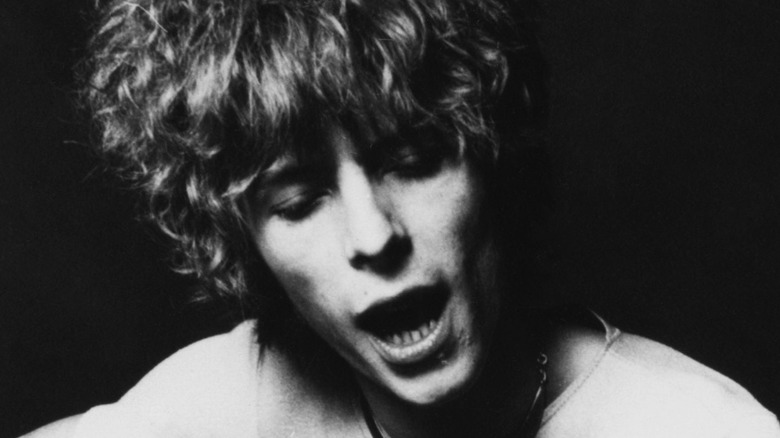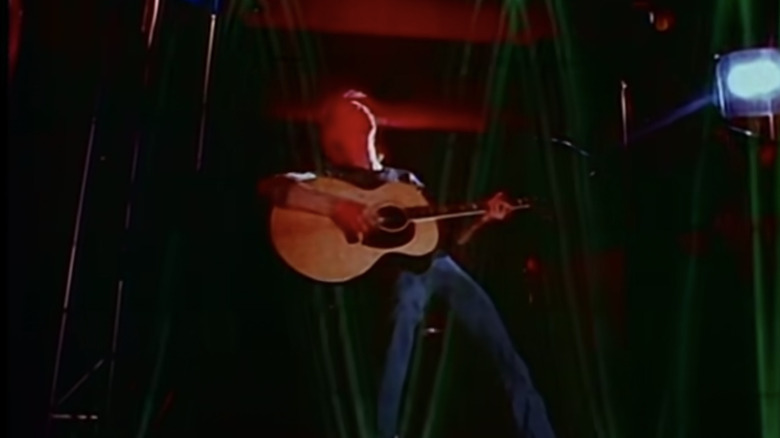This Famous Film Inspired David Bowie's Space Oddity
David Bowie's hypnotic 1969 hit, "Space Oddity" was vast and otherworldly, and very much a product of its times in many ways; it was unleashed on the world just a few weeks before Apollo 11 landed on the moon and enabled the world to dream bigger because what had once seemed impossible was now happening live on tv. In the summer of 1969, space was definitely having a moment. Thankfully, the fates of Neil Armstrong, Buzz Aldrin, and Michael Collins were not doomed, unlike that of Bowie's Major Tom, who was drifting farther into outer space with a quiet, peaceful acceptance by the end of the song that he'd never make it back home.
While most of us will never know what it's like first-hand to be an astronaut aboard a "tin can" bound for orbits unknown, there's still something so familiar about Major Tom's melancholic plight: "For here am I sitting in my tin can/Far above the world/Planet Earth is blue/And there's nothing I can do" (per Genius).
It was the sense of isolation I related to
It turns out that this tale of a man drifting farther away from all he held dear was inspired in large part by heartbreak, something most can relate to on a subconscious level. According to the Independent, Bowie and actress Hermione Farthingale had broken up, and he was feeling isolated and directionless when he wrote "Space Oddity." Related, in 1968 he had also come to be quite a fan of Stanley Kubrick's "2001: A Space Odyssey."
"It was the sense of isolation I related to," he said. "I found the whole thing amazing. I was out of my gourd, very stoned, when I went to see it. It was really a revelation to me. It got the song flowing."
Bowie said that another part of the song was related to all the talk of the great "American dream" leading up to the Apollo 11 mission. "Here was the great blast of American technological know-how shoving this guy up into space, but once he gets there he's not quite sure why he's there. And that's where I left him."
Bowie was a true artist, blending pop culture, personal pain, and the current events of the day into a song of beauty that still resonates in this weird 21st century.

